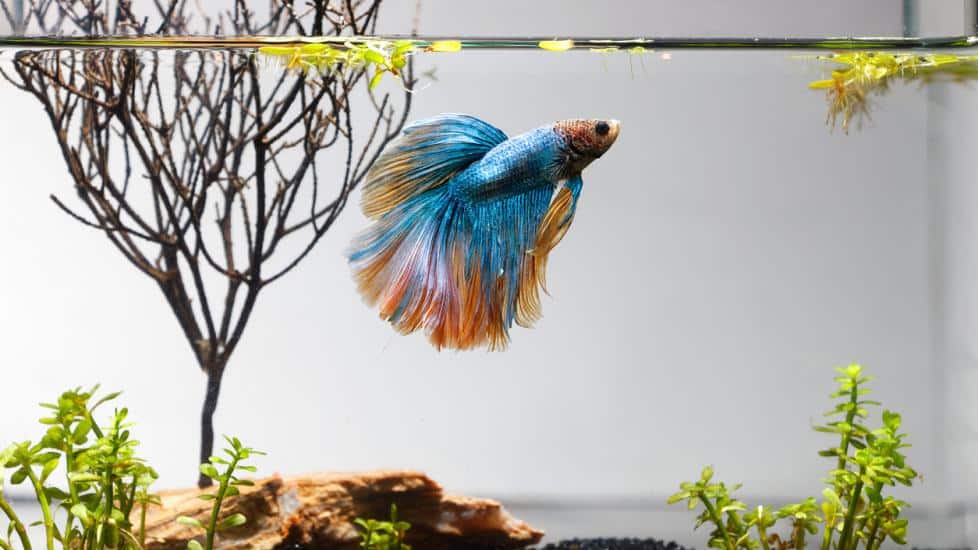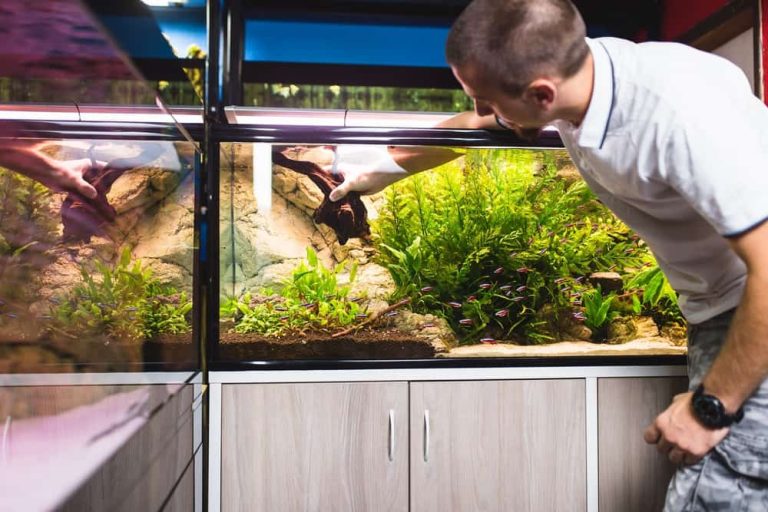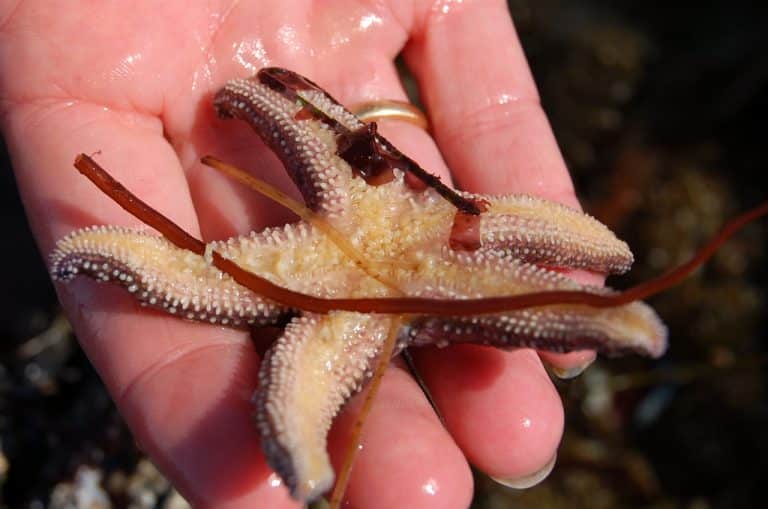Betta Fish Laying on Bottom of Tank: 12 Signs of Stress
Nature is the finest artist out there, and as you look through the world of fishes and flowers, you understand nature’s magical touch. Just as a garden enhances your house’s charm, an aquarium adds splashes of colors to bring more life to the space.
A fish that exhibits the finest blend of colors is Betta Fish. They are gorgeous and widely popular for their beauty, so you can never go wrong with a Betta aquarium for your home.
Also known as Siamese fish, they are an amazing option for your aquarium. Keeping Betta Fish lively and healthy requires special care. Here, we will learn about the basics of keeping Betta Fish and issues that you must look out for if you have betta fish.
Know the Basics of The Betta Keeping
Betta Fish are extremely sensitive beings requiring special attention and care daily. Their magical color blend needs to be taken care of, and so does their health. Let’s learn how to keep Betta Fish healthy and lively in a tank.
1. Tanks
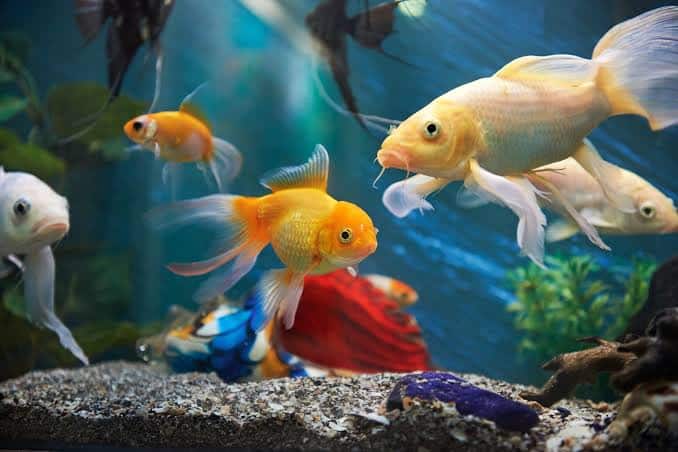
If you plan to bring Betta Fish home, you should first know they require at least 5 gallons of space each. These babies can not survive in closed spaces, unlike other water babies you might have. Depending on the size of each fish, there can be changes, but on average, you will need 10-20 gallon tanks to create an ideal living condition.
In addition, the best way to keep Betta Fish is to create a natural environment for them. You would want a tank filled with rocks, driftwood, and water plants.
2. Life
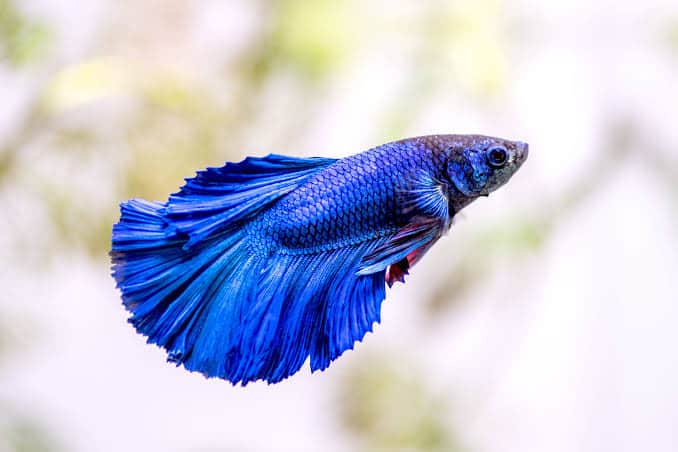
Betta Fish have a life expectancy of 5-7 years. If you want to ensure a long-lasting life for your fish, keep them in a natural living environment, as an improper space can drastically lower their life expectancy.
3. Companions
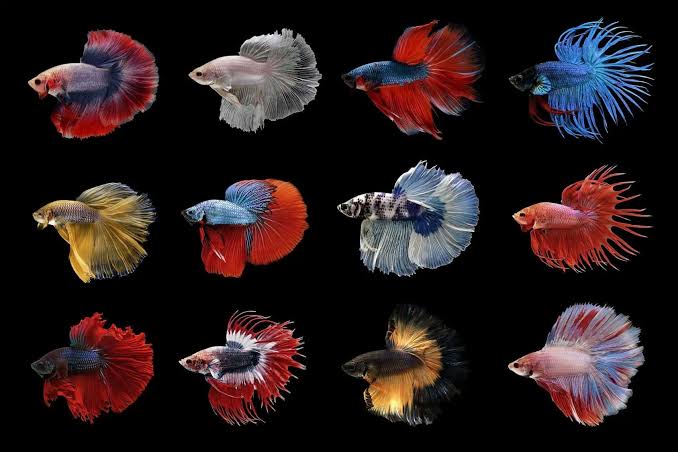
Betta Fish has an interesting personality that can be surprising to many. They are considered aggressive water beings, making it almost impossible to keep multiple male Betta Fish in the same tank without threatening their life.
Studies show that male Betta Fish are extremely territorial, and their chances of fighting with other male members are high. If you want to keep more than one Betta Fish, bring female water babies home. They are known to be less aggressive and rightly docile.
Wondering what other species of fish you can keep in the same tank? Take a look at some of these safe options-
- Neon tetras
- Blue gourami
- Pictus catfish
- Bottom-dwelling fish
- Frogs
4. Food

You might already know that fishes are extremely particular about their diet and sensitive towards food. Betta Fish are naturally carnivores, so you must focus on a high protein and Vitamin diet.
Ensure not to overfeed them as this would hamper their metabolism, and all the waste would create an unhealthy living space in the tank. Just like any other pet, your Betta Fish also deserves a treat once in a while. Occasional shrimps, krill, and bloodworm bites are enough to please their belly.
Additional Info– Betta Fish are habituated to eat insects and larvae when left in wild water. To imitate their natural food, you would not want to offer them fish flakes as they would reject or will not be able to sustain for long on flakes.
Reasons Why Betta Fish is Laying on The Bottom of The Tank

Being a fish parent, the most worrying sight is finding your fish at the bottom of the tank. However, you do not need to panic. There can be several reasons why your Betta baby is lying on the floor. Before you panic or get disheartened, understand these 12 common reasons behind your fish lying on the bottom of the tank.
1. Sleeping
Just like us humans, fish also need sleep. This is what makes Betta Fish’s personality interesting. Unlike other animals incapable of lying, Betta Fish tends to sleep by lying down. You will never find your fish sleeping in the same area where they swim. Instead, they go for the bottom of the tank near decorations. So, if you find your fish lying around rocks or under a tree, they are probably just sleeping.
2. Age
Since Betta Fish have lower life expectancy, they tend to get old faster. This becomes a major reason for them trying to find resting time all day long. While the young ones sleep during the night, if your fish is getting old, they tend to rest more at the bottom.
3. Ammonia
Ammonia is a deadly component that is often found in aquariums. One of the biggest reasons for these components to develop is the presence of large quantities of waste that increases ammonia levels.
So, if you find your fish lying at the bottom, it can be because of Ammonia Poisoning. You can avoid ammonia components from developing by keeping the minimum level of fish in the tank and ensuring that the ammonia level does not rise above 0.0 ppm.
4. Nitrate
Nitrate Poisoning, though rare, can be deadly for your fish, resulting in them laying at the bottom of the tank. The water in the tank gets an excess nitrate level when ammonia enters and stays for a long period. Ammonia contents are converted into nitrite and then nitrate.
The simplest way to keep nitrate away from tank water is to completely change the water every time after the cycle is finished.
5. Swim Bladder Disorder
Swim Bladder Disorder is a common issue found in tank fish. The disorder occurs due to bad water quality or any other body illness. You can look for symptoms such as a curved back, bloated body, struggle to maintain an upright position, or floating around the tank without any control over the movement.
Swim Bladder Disorder often results in your fish taking rests at the bottom. You can protect your fish from bladder disorder by ensuring clean and healthy water and diet.
6. Aquarium size
Betta Fish are known for throwing tantrums about their living conditions. So, if your tank is not big enough for them, you will often find Betta Fish lying at the bottom out of boredom or an unhealthy body. You would want to get a tank fully cycled with at least 5 gallons of space for your Betta.
7. Temperature
As a fish parent, you should know that Betta is a tropical fish that constantly needs a temperature of 78-80 degrees Fahrenheit. You must place an aquarium heater to maintain a constant temperature. Due to several misconceptions around Betta, owners often fail to maintain the ideal temperature, creating a deadly space for the fish.
8. Water quality
The PH level of water in the tank severely impacts your fish’s health. Let’s break it down to simplify: Betta Fish are naturally used to live in wild water with slight acetic content. When you put them in tank water, your fish constantly fights to survive through the varying PH levels.
On average, aquariums have a 6.0-8.0 water pH level, which is comfortable for Betta. However, since the water in the aquarium keeps changing the pH level, it becomes difficult for the fish to adjust, resulting in a stressful and deadly condition.
9. Aquarium filters
Finding the right filter for the tank is more important than you think. A filter that pushes water flow to an unprecedented level can lead to Betta Fish being pushed across the tank, leading to injuries.
A tank with lower water flow can again lead to Betta Fish struggling to swim comfortably. Both these situations result in your fish struggling to recover at the bottom. Finding fish at the tank’s bottom has a lot to do with aquarium filtration.
10. Diet
Improper or unhealthy diet can severely impact their health and activeness. Being a fish parent, you probably know they are highly particular about food. This increases when you bring Betta Fish to the aquarium.
They might become unhealthy and inactive if you fail to provide them with a protein-rich diet, resulting in constant resting hours at the tank’s bottom.
11. Zero Interaction
Betta laying on the bottom of the tank can also signify their will to interact with new mates or owners. Every pet needs love and attention every once in a while. Although Betta Fish are not fond of overcrowded tanks, they enjoy interaction with 1-2 other fish.
12. Tank Mates
Betta Fish are aggressive water beings who find it hard to gel with all kinds of fish or fish of the same species. If you keep multiple fish in the tank, then there are high chances of Betta Fish fighting and trying to get rid of others. Some of them might be lying at the bottom because of injury or death.
Identifying Signs of Stress in Betta Fish
Fish are known for being extremely sensitive beings who can be affected by the slightest change in their diet or living conditions. When it comes to Betta Fish, you must know that they are naturally prone to stress, which can result in a weaker immune system and numerous diseases.
Here are common signs of stress that you can identify at an early stage to avoid any serious health concern
- Laziness
- Lack of Appetite
- Discoloration
- Respiratory Issues
- Clamped Fins
Look Out for These Concerns Regarding Betta Fish
Betta Fish are hardy species of fish that can light up the tank with their beautifully colored bodies. As a fish parent, it is on your shoulders to offer them a healthy living environment at all times, as they are extremely sensitive.
It would be best if you looked out for these everyday concerns in the tank to protect your Betta Fish from any health issues-
- Aquarium Size- Experts can not stress enough that Betta Fish requires a large space to survive. The average recommended space is a 5-gallon tank for 1 Betta Fish. While this stays the minimum requirement, you would want to add decorations to create a natural living environment- This will need additional space. Ensure enough space for your fish to swim and breathe freely.
- Tank Mates- Betta Fish are peculiar about their tank mates, and putting multiple fish with Betta is often difficult. Regardless of the species, it would be best not to clump the tank with too many fish. In addition, if you have more than 1 Betta in the tank, you must watch them regularly as they tend to fight and injure one another.
- Water Quality- Ensuring balanced water parameters is fundamental when you have Betta. It would be best to look out for water filtration, pH level, and ammonia contents weekly to avoid discomfort to your fish.
- Temperature- Remember that Betta is a sensitive fish naturally used to stay in a hot water body. Keep an eye on the temperature in the water tank every day, as fluctuations or unideal temperature can be deadly to your fish.
Make Sure that Your Betta Fish is Moving

Betta Fish are not naturally lazy or lethargic beings. So, if you find betta fish lying on the bottom of a tank, this can indicate their stress, health issues, or simply because they have gone deep into sleep. Regardless, it’s always suggested to keep your pet active. Take these easy steps to keep your Betta moving
- Change Water- Betta is sensitive to water conditions, so you want to maintain the best quality by changing 100% water at the end of every cycle.
- Improve diet- If you want to keep your fish active and see them swimming happily, you should focus on providing them with a protein and vitamin-rich diet.
- Add decorations- To make your fish feel like they are staying in their natural habitat, you can add decorations such as rocks and plants. This will promote a healthier mind and better swims.
- Change the location- Make sure that the tank/aquarium is not located in a dark and covered area. Betta, a tropical fish, is habituated to sunlight and a vibrant environment. Lack of this can cause stress, lethargy, and even health issues.
- Look out for signs of illness- If your Betta fish is not healthy, they will tend to stay at the bottom of the tank, resting or sleeping. So, to keep them moving, ensure they are not suffering from any illness.
Summing Up
The fish kingdom is about beautifully colored swim babies you can never get enough of. Betta is a hardy fish with probably the prettiest color blend that will enhance the charm of your water tank.
However, they are also high maintenance and require you to promise them more attention than other fish species. Prone to health issues, you would want to monitor their movement and identify signs of stress at an early stage.
If you promise them an ideal living condition, Betta will be a loving pet for 5-7 years. Now that you know all about keeping Betta Fish, it is time to add these colorful babies to the tank that will leave your guests in awe.
Frequently Asked Questions
What is Betta Fish?
Betta Fish, or Siamese Fish, are typically found in Tropical areas. Famous for their unique blend of colors, you can find Betta Fish in several home aquariums.
Why is My Betta Fish Not Moving?
If your Betta Fish is not moving, it can be due to several reasons. They might be sleeping or resting. However, lack of movement also indicates health concerns such as ammonia or nitrate poisoning and swim bladder disorder.
How to Keep Betta Fish?
Keeping Betta Fish might sound daunting, but the key goal is to create a natural living environment for them. Keep them in big tanks (5 gallon- 1 fish) and add decoratives for nature imitation.
What are the Signs of Stress in Betta Fish?
Betta Fish are known for being sensitive, and they can show signs of stress. If you find your fish inactive, lacking appetite, or losing color, these are signs of stress you should take care of.
Is Betta Fish Prone to Health Issues?
No, Betta Fish are hardy fish that can survive for 5-7 years easily, given the right living conditions and diet. However, they are extremely sensitive to temperature and water quality.

